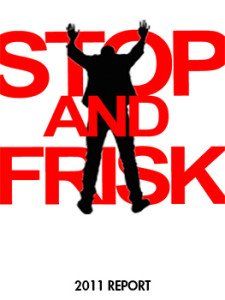The Limits of Indiana’s Misdemeanor Arrest Statute
January 23, 2016

Law enforcement always has authority to arrest when there is an arrest warrant for the person, and when the police have probable cause to believe the person has committed or attempted to commit a felony. However, there are limits to law enforcement’s power to arrest for a misdemeanor if they do not actually observe the misdemeanor.
I.C. 35-33-1-1 enumerates a number of misdemeanors for which law enforcement may arrest so long as they have probable cause, but a number of the most common misdemeanors require that the police actually observe the commission of the misdemeanor or the attempted commission of the misdemeanor in order to arrest. Some misdemeanors which must be committed in the off icer’s presence to justify an actual arrest in Indiana are public intoxication, illegal possession or consumption of alcohol, possession of marijuana, possession of a controlled substance and possession of drug paraphernalia.
This can be important as it relates to an actual search of the person “incident to an arrest.” Law enforcement routinely search those that they arrest, including their pockets and containers. This is generally permitted for safety. However, if the police lack the authority to arrest, they lack the authority to conduct a search incident to an arrest and must justify any search they perform on some other basis, which is frequently difficult. For example, the State might attempt to justify the search on the basis of what is called a Terry frisk, but Terry frisks are limited to external pat-downs unless law enforcement feels something “immediately and apparently incriminating,” which they are permitted to retrieve. Any manipulation of the suspect item or any other searches of the insides of pockets and containers are generally not permitted under Terry. The purpose of a Terry frisk is intended to be limited to ensure safety; it is not for evidence gathering purposes.
Should you have been arrested for a misdemeanor not listed as an exception in I.C. 35-33-1-1 and should the police not have actually observed the commission or attempted commission of a misdemeanor, you may have a basis for the suppression of any evidence found as a result of the search, and you should contact an experienced attorney regarding a Motion to Suppress Evidence.
The post The Limits of Indiana’s Misdemeanor Arrest Statute
appeared first on Cannon Bruns & Murphy, LLC.



